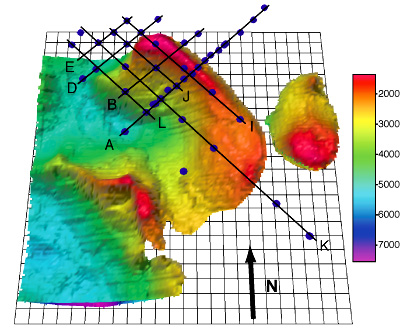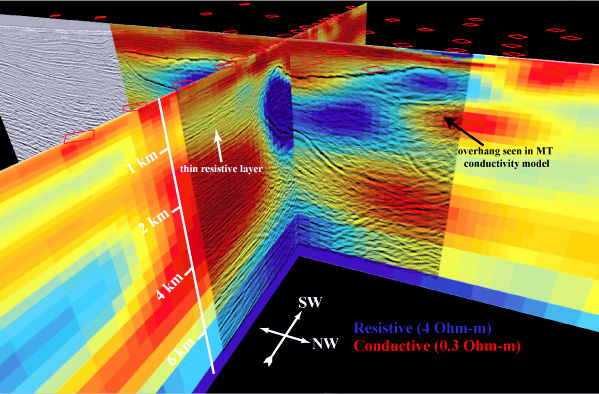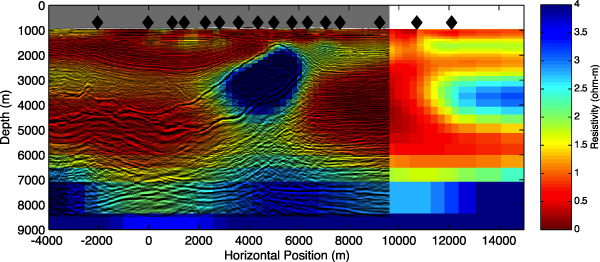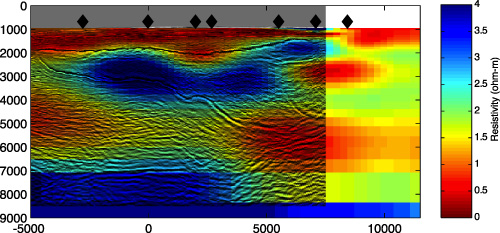 |
 |

|
 |
Research | Gemini Prospect
Gemini Prospect Marine MT and CSEM Surveys
EM Lab Personnel:
Kerry
Key, Steven Constable
This work was supported by the Scripps Seafloor
Electromagnetic Methods Consortium.
Gemini Prospect, Gulf of Mexico (GoM) has served as the
test bed deployment site for the development of a broadband
marine magnetotelluric (MT) method. Located in 1 km deep
water, Gemini contains a complex three-dimensional (3D) shaped
salt body at depths of 1-5 km beneath the seafloor. The high
electrical resistivity of the salt contrasts greatly with
the surrounding conductive sediments and provides a suitable
target for electrical methods. Using a broadband MT instrument
that responds to higher frequency electric and magnetic fields
than traditional marine MT systems, we have collected 42
sites of MT data in the period band of 1-3000 seconds in
a two-dimensional (2D) grid over the Gemini salt body. This
is an excellent data set for testing marine MT’s ability
to map salt structures and also for developing and testing
2D and three-dimensional (3D) modeling techniques.
We present
2D models obtained from inverting subsets of the MT data,
along with a comparison to the Gemini salt volume boundaries
obtained from high resolution 3D seismic data. While some
of the 2D inversion models recover the salt boundaries
remarkably well despite the complex 3D shape of the Gemini
salt body,
the results are heavily dependent on the electric field
orientation of the impedance tensor component being inverted.
Our experience
suggests that inverting the impedance component with the
electric field perpendicular to the dominant structural
strike yields the best agreement with the seismic salt structure.
Synthetic 2D inversions of the 3D MT forward response of
the salt volume are used to validate the observed sensitivities.
An improved structural interpretation is available through
the joint analysis of the combined depth migrated seismic
reflection and electrical resistivity models, illustrated
by correlated features in the reflection and resistivity
images.
|




|
|
 |
 |
Last updated: Wednesday, 06-May-2009 14:39:13 PDT
email: sconstable@ucsd.edu
|
|